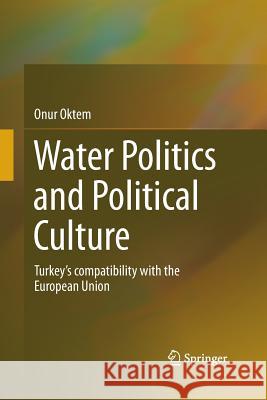Water Politics and Political Culture: Turkey's Compatibility with the European Union » książka
topmenu
Water Politics and Political Culture: Turkey's Compatibility with the European Union
ISBN-13: 9783319368894 / Angielski / Miękka / 2016 / 182 str.
Kategorie:
Kategorie BISAC:
Wydawca:
Springer
Język:
Angielski
ISBN-13:
9783319368894
Rok wydania:
2016
Wydanie:
Softcover Repri
Ilość stron:
182
Waga:
0.28 kg
Wymiary:
23.39 x 15.6 x 1.07
Oprawa:
Miękka
Wolumenów:
01
Dodatkowe informacje:
Wydanie ilustrowane











